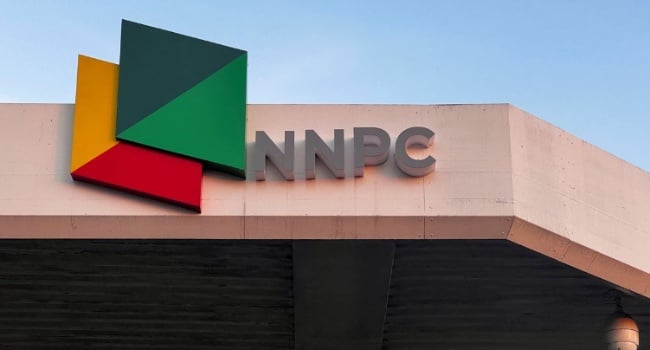BY VICTORIA RAIMI
Land registration offers strong legal protection by proving ownership beyond a reasonable doubt. It protects it from future disagreements and claims by third parties and strengthens a person’s rights and interests in the property.
Land registration creates an easily readable document that reflects the information contained in all paper title deeds and establishes proof of ownership. It is a legal process where an individual registers the land in his/her name by paying a certain amount, which is a percentage of the land value.
Nigerian land registration procedures are known for their complexity and administrative roadblocks. Despite the country having a great deal of potential for economic growth, many obstacles remain. The lengthy and complicated land registration processes are one such barrier that has soured the investment environment, impeded economic growth, and sustained social inequality. To ensure effective and transparent procedures that will promote development and empower its citizens, Nigeria needs to simplify its land registration procedures.
Advertisement
As stated in the Land Use Act of 1978, the procedures and prerequisites for land registration are a survey of the land to be registered, obtaining the governor’s approval, and registering the land at the land registry. It takes three to six months or longer to obtain the governor’s consent, as it also requires submitting numerous documents and paying numerous fees, one of which amounts to 10% or 15.8% of the value of the land itself. People often don’t want to go through these largely difficult processes, resulting in so much land remaining unregistered in the country.
Efforts of the governments to simplify land registration procedures.
Some states have already begun to take action in the area of land administration. At a meeting held in his office in November 2023, Kamar Olowoshago, the permanent secretary of the Lagos State Lands Bureau, declared that a digital process for land administration had been implemented in Lagos. The government can now automate land record management and register property transactions in a more transparent, controlled, and timely manner thanks to this digitised process.
Advertisement
During his first term, Dapo Abiodun, the governor of Ogun state, changed the way land was administered. The reform initiative was implemented through the creation of the Ogun State Land Administration and Revenue Management System (OLARMS), which occurred in 2021 to simplify and enhance the state’s land administration procedures. The objective is to offer unmatched quality in land administration, manage services openly and effectively, and cut down on time waste. Since its launch, the OLARMS portal has allowed state residents and the general public to handle land service matters more effectively while also restoring order to the land administration process.
In 2021, the Oyo state government also launched a program known as C of O Redefined, which aims to provide quick access to documents for all property owners. The goal is to ensure that all lands acquired are easily and lawfully registered to prevent conflicts or land grabbing.
Despite the efforts of these three states, land registration procedures in the states and Nigeria at large have not seen any significant improvement, as it remains the same expensive and stressful process it has been for years.
Why the procedures should be simplified.
Advertisement
The process of land registration needs to be improved upon to unlock economic potential. The complicated land registration process in Nigeria has deterred foreign and local investors from participating in land-based projects. Simplifying the land registration process can boost economic activity, draw in much-needed investment, and generate job opportunities. Potential investors will be more likely to put their money into infrastructure, real estate, agriculture, and other industries when the complexity is reduced, which will boost output and income.
Additionally, accountability and transparency are encouraged by a simplified land registration process. Nigeria’s registration process lacks accountability measures and clear guidelines, making it vulnerable to fraud and corruption. Digitising land records to make them easily accessible and verifiable by all parties involved could be one way to simplify procedures. Increasing openness guarantees that conflicts are settled quickly and effectively, discouraging illegal activity and creating an atmosphere that is conducive to investment.
There is also a need to enhance customary land ownership. In Nigeria, especially in rural areas, customary land tenure systems are common. Complicated registration procedures, however, frequently disregard these conventional methods, leaving communities open to encroachment and land grabbing. It is possible to safeguard the rights of customary landowners and facilitate their increased involvement in the formal economy by simplifying the land registration procedures. Nigeria can better promote social harmony and decrease conflicts by striking a balance between customary practices and modern regulations by incorporating the recognition of customary land ownership into the registration system.
Moreover, the absence of official land titles prevents many Nigerian small-scale farmers and business owners from obtaining credit. To grant loans, financial institutions frequently need collateral, like land, but the difficult registration procedure prevents many people from taking advantage of this chance. Landowners would have easier access to credit and financial services if formal titles could be obtained through simplified land registration procedures. By generating income-generating opportunities, this empowerment will promote business expansion, boost agricultural development, and lessen poverty.
Advertisement
Furthermore, simplifying land registration could open the door for appropriate urban planning and development in Nigeria’s rapidly growing urban areas. At the moment, undefined land ownership rights and uncontrolled settlements obstruct housing development, infrastructure projects, and efficient city planning. If land registration procedures are made simpler, local governments will be able to locate landowners, distribute resources effectively, and carry out well-organized urban development plans. This will result in better living conditions, fewer slums, and the encouragement of sustainable urban growth.
Simplifying land registration procedures is essential to maximizing Nigeria’s growth potential. The existing structure stifles investment, impedes economic growth, and upholds social injustices. Nigeria can protect land rights, encourage investment, increase transparency, and stimulate economic growth by adopting simplified procedures. The Nigerian government must make land reforms a top priority, expedite procedures, and fund technological advancements that will transform the registration system. By doing this, Nigeria will realize its full potential and create a more prosperous and just country for all of its people.
Advertisement
Victoria Raimi is a communications associate at Ominira Initiative for Economic Advancement.
Advertisement
Views expressed by contributors are strictly personal and not of TheCable.
Add a comment






